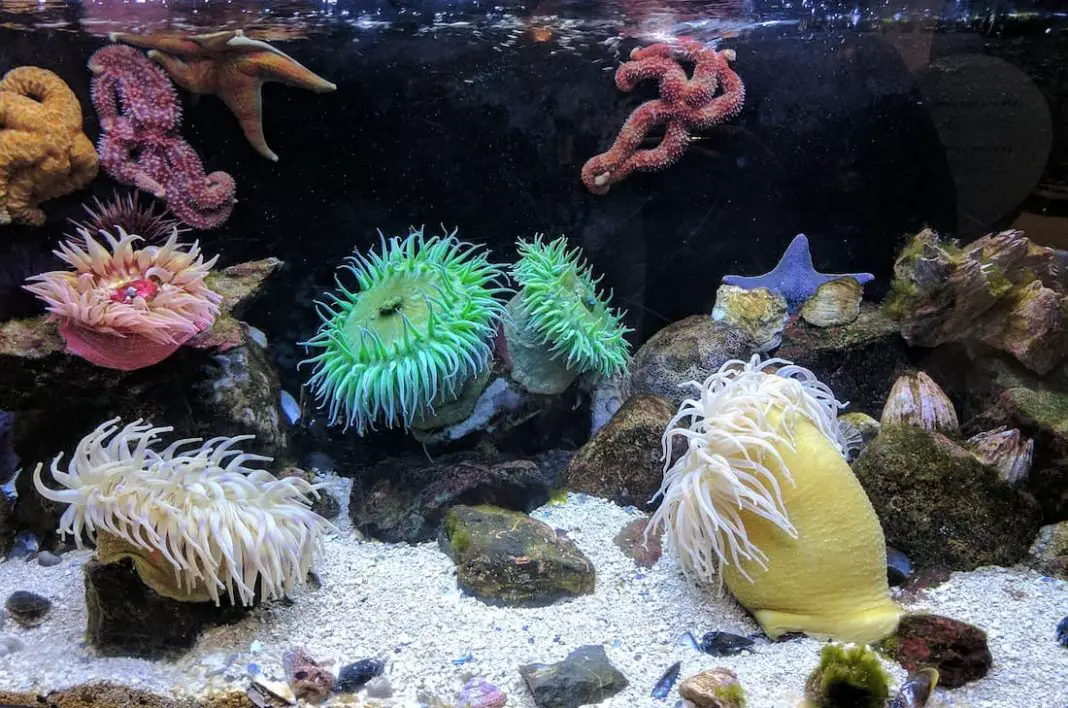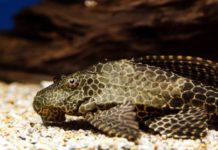Should You Get Rid Off A Black Sponge In Your Reef Tank?
Although sponges can be some of the most amazing, and interesting. These almost alien-like creatures are found in many marine habitats one place where they don’t belong, is in a reef tank. Some reef owners don’t necessarily believe in this viewpoint as some aquarists still tend to treat their reef tanks like a kitchen sink for all reef life, and therefore just about anything will stay inside their tank.
The reason black sponges can be a problem is that they usually grow over coral, choking out the lower areas of densely branching colonies, smothering polyps and rocks, or generally getting stuck in equipment where they don’t belong.
Black Sponges Compete With Other Reef Life For resources
Having a black sponge in a reef tank can concern aquarists not only for what they can release into the aquarium water but also for what resources they can take from other creatures within the tank.
As they’ve both adapted to living in seawater, corals and sponges need the same suite of elements like iodine, strontium, potassium etc, to keep their cells alive and growing.
Black sponges can suck up all the other trace elements that corals need and essentially compete with corals within the tank for different traces of elements that we try to replenish regularly through regular additions and water changes. In an aquarium environment devoid of sponges, you can be assured that corals are only competing with other corals for some trace elements.
Black Sponges Can Overgrow And Kill Corals
If you thought competing with corals for the chemical soup within your tank was bad enough, you can also visually see a black sponge overgrow on corals. Remember that space within the reef, and of course space in our aquariums, is always limited.
When black sponges do really well in an aquarium environment, they’ll grow just about anywhere and everywhere. Black sponges are notoriously indiscriminate about where they grow, although aquarists tend to think of sponges as something that mostly grows in the sump or the rocks. Coral skeletons are equally suitable real estate for black sponges.
Black sponges love to grow with the shelter that corals can provide, be it on the edge of LPS corals, within the branches of LPS corals like Caulastrea and Blastomussa. You can imagine how devastating this can be when sponges grow on the lower dead branches of the birdnest and other SPS corals.
Did you know that black sponges can grow inside coral! These sponges can kill corals from the inside out – usually, this is only experienced in colonies that have some wild skeleton with them. It just goes to show you that black sponges aren’t as innocuous as they initially seem.
Black Sponges Are Nothing But A Liability In An Aquarium
Although you may think that this article is anti-sponge, it’s more of a pro-coral article.
Sure, at first seeing a little black sponge can be interesting, however, if the black sponge in your tank is constantly creeping up from behind or under the rock, and continually encroaching on other corals that they come across, then this could quickly become a problem.
Will The Fish In My Tank Help To Remove Black Sponges?
Unfortunately, most fish, especially ones that typically inhabit the average reef tank, can’t or won’t eat black sponges. The reason is that sponges lack nutritional value and don’t interest the majority of fish species. However, if your tank has the right water conditions, there’re a few black sponge predators out there.
Angel Fish
The number one feeder of sponges is the angelfish, whose diet typically comprises at least 70% sponges. There is a negative drawback to this, and that is because an angelfish can also completely destroy any coral in your tank, so it really depends on what else is in your reef tank and how badly you want the black sponges gone.
There’re a few more options, such as the triggerfish or filefish, although having a few angelfish in your reef tank could accomplish the task a lot better. Just do your research on which type can be compatible with the rest of your tank as they can seriously wreak havoc on corals.
Other fish that will prey on black sponges include wrasses, leatherjackets, boxfishes and pufferfishes. For some of these species, sponges comprise over 70% of the diet.
Tank Invertebrates
While angelfish will prey primarily on sponges, they may not be ideal for your tank, you have another option with some invertebrates. There’re a number of invertebrates like crabs, and snails that specifically eat sponges, so check if any of those would work.
Other options include sea stars and pencil urchins are also known to feed on black sponges, so there are a lot of options to add something to your population that’ll help to remove your black sponge problem. Just be careful, as sometimes crabs will eat coral as well.








